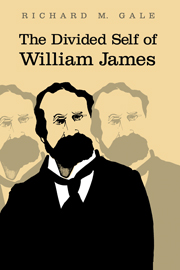Book contents
- Frontmatter
- Contents
- Acknowledgments
- Introduction
- The Promethean Pragmatist
- 1 The Ethics of Prometheanism
- 2 The Willfulness of Belief
- 3 The Freedom of Belief
- 4 The Will to Believe
- 5 The Ethics of Truth
- 6 The Semantics of “Truth”
- 7 Ontological Relativism: William James Meets Poo-bah
- The Anti-Promethean Mystic
- Appendix
- Bibliography of Works Cited
- Index
7 - Ontological Relativism: William James Meets Poo-bah
Published online by Cambridge University Press: 05 June 2012
- Frontmatter
- Contents
- Acknowledgments
- Introduction
- The Promethean Pragmatist
- 1 The Ethics of Prometheanism
- 2 The Willfulness of Belief
- 3 The Freedom of Belief
- 4 The Will to Believe
- 5 The Ethics of Truth
- 6 The Semantics of “Truth”
- 7 Ontological Relativism: William James Meets Poo-bah
- The Anti-Promethean Mystic
- Appendix
- Bibliography of Works Cited
- Index
Summary
“My William James,” engaged as he was in the grand Promethean quest to have it all, not surprisingly espoused an ethical theory whose ultimate normative principle is the duty always to act so as to maximize desiresatisfaction over desire-dissatisfaction. When this duty is conjoined with his will-to-believe-based belief that persons are free creators of their own beliefs through intentional acts of effortful attention, the result is a bold revisionary moralization of epistemology, it now being our moral duty to believe in a way that maximizes desire-satisfaction, with a belief counting as true when it in fact does so. This highly Promethean philosophy enables James to satisfy his underlying quest to have it all by allowing – nay requiring – him to seek full self-realization for each of his many selves, for this is the highest form that human flourishing takes.
The Introduction showed how this quest creates both an engineering and a metaphysical problem. There is nothing that can be done to solve the engineering problem due to our radical finitude other than to use our brief allotted time and resources in the most productive way we can. The metaphysical problem arises from the seeming clash between the ways in which our different selves conceive of the nature of reality. In Pragmatism James recommends the adoption of his pragmatic method for determining meaning and truth as a reconciler or mediator between these seemingly conflicting selves, of which our “tough- and tender-hearted” selves are prime examples.
- Type
- Chapter
- Information
- The Divided Self of William James , pp. 186 - 216Publisher: Cambridge University PressPrint publication year: 1999



